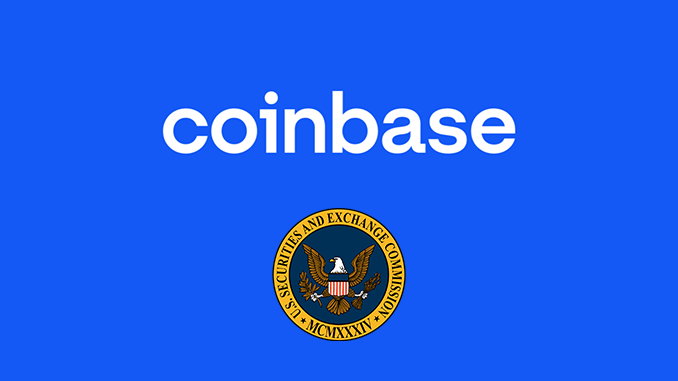
The US crypto exchange Coinbase is bracing itself for a lot of trouble with the SEC. Observers recognize a rigorous approach in the SEC’s actions with regard to Ripple and Uniswap as well.
When the head of Coinbase, Brian Armstrong, spoke at length on Twitter a few days ago, he must have calculated the explosiveness of his statements. That’s because Armstrong is basically accusing the powerful U.S. Securities and Exchange Commission (SEC) of hindering innovation and threatening Coinbase with lawsuits for no reason. Coinbase has been listed on the exchange itself since April and, according to Armstrong, has been tweaking an offering for months that would earn customers attractive interest rates for deposits in the stablecoin USD Coin (USDC). But the SEC refused to engage in any constructive dialogue about how to make this offer compliant with the law, he said. Instead, he said, the SEC has announced it will go to court if Coinbase rolls out its offer.
With his high-profile remarks, Armstrong has stirred up a hornet’s nest, according to experts. That’s because the SEC is anything but cozy with the crypto industry in 2021. In the ongoing lawsuit against Ripple, the SEC shows no signs of willingness to compromise and has been effectively blocking U.S. business with XRP for nine months now. In addition, it was announced in early September that the SEC is conducting preliminary investigations against Uniswap (UNI) and intends to abandon regulatory restraint against the DeFi division. With Coinbase, Ripple and Uniswap, three crypto industry heavyweights would then be in conflict with the SEC at the same time. At the same time, some had hoped that with the replacement of Gary Gensler as head of the SEC, there would be more awareness of the realities of the new era.
With relish, Armstrong now quotes Gary Gensler from his application speech. Under his leadership, he said, the SEC should guarantee clarity and guidance to the business community. But he himself, Armstrong, had failed to get an appointment with Gensler or other SEC representatives. Coinbase had been proactive in approaching the SEC, according to Armstrong, and had also answered additional questions about the new financial product and corporate governance. But all that came out of that, he said, was the SEC’s threat of action without any argument. Armstrong sees the Coinbase loan deal with USDC, which is already being advertised here, as a normal occurrence. In fact, such deals have long been commonplace at other crypto exchanges. And the infamous Howey Test, which circumscribes the SEC’s jurisdiction, doesn’t apply to a credit transaction either.
Bottom line: U.S. crypto industry at loggerheads with the SEC.
Armstrong concludes that Coinbase will likely have to brace itself for a court battle with the SEC to gain legal clarity. In response, Ripple CEO Brad Garlinghouse is already (cynically) welcoming him to the party and even Coinbase’s direct competitor Kraken is signaling solidarity. In any case, Kraken CEO Jesse Powell is backing Armstrong and Coinbase on Twitter. He says the SEC favors the traditional banking system and hinders the crypto industry. With this, Powell makes a crucial detail clear: Coinbase wants to offer four percent annual interest on the stablecoin USDC and aggressively advertises this by guaranteeing eight times more interest than banks.
Now, from the SEC’s perspective, the three cases of Ripple, Uniswap and Coinbase are certainly too different to simply be lumped together. But it doesn’t bode well when the SEC, under chief Gary Gensler, is power-conscious and aggressively always seeking legal recourse. Armstrong, for Coinbase anyway, comments, “Regulation through litigation should be the last resort for the SEC, not the first.” Whether this will persuade the SEC to change its mind is unlikely. More duels are brewing between the SEC and the crypto industry in the US.
Open a Binance Account here and save 10% on fees for a lifetime.
Leave a Reply